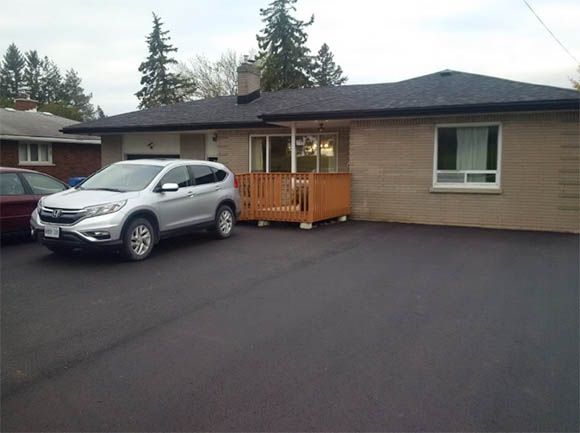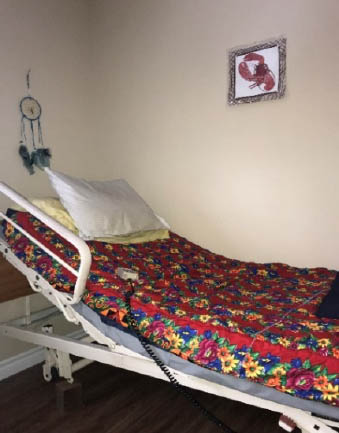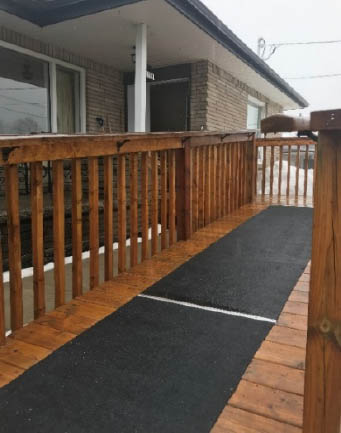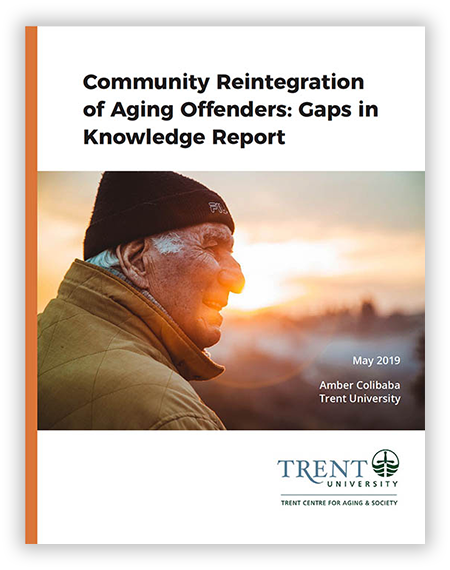Pilot Project
Overview
To further address the gaps in knowledge about the community reintegration of aging offenders, the CRAO collaboration launched the Community Reintegration of Aging Offenders (CRAO) Pilot Project in July 2018. The goal of the one year, now completed, pilot project was to examine the experiences of aging male offenders as they transition from correctional institutions into the community, and to better understand the organizational structure and approach of Haley House. The objectives are 1) to document the issues, challenges and opportunities of community reintegration of aging offenders, and 2) to establish the conceptual and methodological foundations for a multi-jurisdictional CRAO research project across Canada. Findings from the CRAO Pilot Project can be found in an accompanying findings report, published in June 2019.
Haley House
Haley House, under the umbrella of Peterborough Reintegration Services (PRS), is a Correctional Service Canada contracted community-based residential facility (CBRF) that provides specialized support for men facing serious chronic physical and mental health issues, or impending end of life. Haley House as a model is to provide the safe and just supervision to those on conditional release all while providing an aging population with the opportunity to die in dignity in a facility that respects the security of its residents and the safety of the greater Peterborough community.
Haley House opened in April 2016 as a fully wheelchair accessible facility that features wide doorways, accessible showers and a lift between the two floors. Along with general residential rooms, Haley House also provides two rooms designed specifically for those residents facing imminent end of life or severe disability. The facility aims at providing a home-like environment to its residents, as they offer three meals a day, access to healthcare such as physicians and personal support workers (PSW), medication management and distribution, transportation and appointment accompaniment, and 24/7 security.
To ensure the safety of both Haley House and the community of Peterborough, men facing conditional release go through a robust admission process before being accepted to Haley House. Admissions for Haley House begin as referrals made by the local Community Assessment Team (CAT), consisting of staff members from PRS, the Peterborough Parole Office, the Peterborough Police Service, and the Central East Local Health Integration Network (LHIN). The CAT team assesses behaviours, history and fit, however, they prioritize those individuals who are difficult to place and pose a challenge for other CBRFs. In addition to individual assessment for admission, it is also dependent upon the staff and room capacity at Haley House and if they have the resources in place to support the needs of the individual.
Research Participants
Interviews (N=20) were conducted with Haley House residents (n=6), staff (n=7) and stakeholders (n=7). The residents were all males, due to the nature of the Haley House admission process, with an average age of 65.5 years. Prior to residing at Haley House, all six participants were in Canadian federal correctional institutions, including Bath Institution in Bath, Ontario (n=1), Beaver Creek Institution in Gravenhurst, Ontario (n=1), Collins Bay Institution in Kingston, Ontario (n=2), Joyceville Institution in Kingston, Ontario (n=1) and Warkworth Institution in Warkworth, Ontario (n=1).
Haley House staff participants covered a variety of roles within the PRS organization, including senior administration, past and present (n=5), assistant caseworkers (n=1) and a volunteer (n=1). Similarly, the stakeholder participants covered a diverse set of sectors and community organizations, including Peterborough Parole Office (n=2), community chaplaincy (n=1), Central East LHIN care coordinator (n=1), personal support worker (n=1), a member of the Citizens Advisory Committee – Peterborough (n=1) and an officer for the Peterborough Police Service (n=1).
Methods
The CRAO Pilot Project was approved at the Trent University Research Ethics Board. Beginning in February 2019, qualitative interviews were conducted with 20 research participants, including Haley House residents, staff, and stakeholders. Upon receiving consent, 19 interviews were audio recorded, with one participant declining so the researcher took notes. The interviews were one-hour in length, and were held at a location most convenient for the participant and began once the participant read, understood, and signed the consent form.
The interviews with Haley House residents began with background questions to ensure a rapport was built between the interviewer and the participant. Background questions included questions related to themselves, how they heard about Haley House while inside an institution, and how they got to Haley House. The researchers then asked questions about their experience reintegrating into the community including their experience with release planning, what barriers they encountered, and what supports they received. The resident interviews concluded with questions specifically pertaining to Haley House, what they enjoy about living there and what they find challenging.
Interviews with Haley House and PRS staff were used to gain an understanding of the development of Haley House, its connection with local partners, and its role within the community reintegration of aging offenders process and within the local community. Similar to the protocol for the interviews with the residents, the interviews with staff began with background questions regarding the participant’s role at PRS/Haley House and their past experience working with this type of population. It then went into questions about the community reintegration process and what they saw to believe were the challenges and positive experiences for the residents. The questions concluded about Haley House and how it was developed, its connection to the local community, its role within the community reintegration process and what they believed to be the next steps in its operation.
Lastly, interviews with stakeholders was used to understand the connection of Haley House to the larger community of Peterborough. The interviews began with background questions on their role within their organization and their involvement with Haley House and then similar to the interviews with staff, probed at the challenges and positive experiences of community reintegration of aging offenders through their perspectives and what they see as the role of Haley House in that process.
Results
The results from the CRAO Pilot Project can be found in the Community Reintegration of Aging Offenders (CRAO) Pilot Project: Findings Report.




